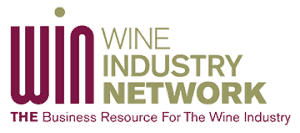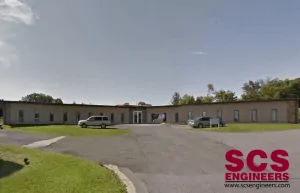

An ammonia system that has accurate valve tags, gives detail within facility documentation of SOPs, verifies the accuracy of facility P&IDs, and provides safety measures for operators and contractors for exercising the appropriate valves on the system. Standard operating procedures with proper valve tag placement also helps prevent human error.
Remember, you have the potential to improve safety and minimize risk. A strong training program and accurate operating procedures making a positive impact on worker safety and system operations.
On March 1, each year facilities that use hazardous chemicals in specific quantities must file an EPCRA Tier II report identifying the chemicals with the State Emergency Response Commission, the Local Emergency Planning Committee, and the local fire department.
Easy to avoid mistakes and omissions in Tier II filings may lead to civil penalties of as much as $54.8K per day. Most cited violations involve just a few common chemicals such as ammonia, sulfuric acid inside equipment, and an EHS that is a component of mixtures. These are often overlooked or thought to be exempt from reporting because the threshold for reporting may be low.
Rather than risk non-compliance, ask the professionals at SCS Engineers about common chemical thresholds, voluntary self-disclosure, and EPA’s audit policies.
Read our most recent EPCRA Technical Bulletin, or contact us at .
Any facility that manufactures, uses, stores, or distributes certain chemicals above a specified quantity listed on Appendix A must complete and submit a Chemical Security Assessment Tool (CSAT) Top-Screen within 60 days of coming into possession
of the Chemicals of Interest (COI) .
In developing the list, the Department looked to existing expert sources of information including other federal regulations related to chemicals. With the publication of a final Appendix A, all provisions of 6 CFR Part 27, including § 27.210(a)(1)(i), are operative and in effect. The other sources that the Department referenced in part are:
Many manufacturers, food storage facilties, cold storage facilities, and industries have chemicals that fall into one or more of the listed categories. Please contact our professional staff to find out if your business is at risk of non-compliance of CFR Part 27.
What to do? Who to contact? Jake Tilley or Lee Pyle of SCS Engineers.
It’s not just that we like wine and happen to live and work in every wine producing region of the U.S.; SCS Engineers understands the need for clean water resources and how important they are to the wine industry and for agriculture in general. SCS helps wineries face an array of environmental and regulatory challenges including:
SCS is pleased to announce we are the newest member of WIN, the Wine Industry Network.

SCS Engineers offers sustainable environmental solutions to businesses with environmental challenges. SCS provides these services to private and public sector clients through a network of nationwide offices. For more information about SCS, please visit our website at www.scsengineers.com, or contact us at .
“Our clients enable SCS to build, grow, and sustain an engineering firm dedicated to solving environmental challenges,” said Jim Walsh, President and CEO of SCS. “We sincerely thank our friends, colleagues and, in particular, our clients for helping us achieve a highly regarded ranking each year.”
Firms are ranked in terms of revenue by Engineering News-Record magazine (ENR), as reported in the May 2, 2016, issue of the “ENR Top 500 Design Firms Sourcebook.” SCS has made the Top 500 list since its publication in 2002 and has ranked in the top 100 of that list since 2008.
When sorted by firm type, SCS Engineers is ranked the second largest environmental engineering firm (ENV) and is ranked in the “Top 20 Sewerage and Solid Waste” service firms in the nation. SCS has made this top 20 list since 2002.
Later in the year, ENR will publish additional resources and lists, including the “Top 200 Environmental Firms” issue, typically published in the month of August.
Learn more about our latest innovation, SCSeTools
Denver, PA. – SCS Engineers is opening a new office in Denver, Pennsylvania. The professional engineering staff currently serving clients in Reading will be joined by additional environmental consulting staff moving to the larger office space on November 1, 2015. The new office is located at:

SCS Engineers
22 Denver Road, Suite E
Denver, PA 17517
Tel: +1-610-382-3050
Denise Wessels, P.E., and SCS Project Manager stated, “We are strengthening our commitment to the Commonwealth, and the new location enables us to broaden our environmental services in the region, including SCSeTools®.”
SCS provides quality environmental consulting and construction services to municipal and private sector clients, and has recently expanded SCSeTools®, a platform for organizing big data collected at landfills. The tools collect data, and then organize the data into analyses, graphs, and maps that allow landfill owners and operators to predict, assess, and plan the operation and maintenance of their facilities. This insight helps with decision-making for operational excellence and helps to improve the bottom line.
This is the third and final article in a series of our interview with representatives from the U.S. Environmental Protection Agency (EPA), Mary Wesling and Robert Lucas, both of whom have extensive experience with Risk Management Plan – RMP implementation and enforcement. The interview continues the discussion of recognized and generally accepted good engineering practices – RAGAGEPs, Process Safety Management – PSM, and EPA resources for help.
Jake Tilley is part of the SCS Tracer Environmental team of RETA certified professionals who work with clients in food service and industrial food and beverage processing.
Click here to read the article.
Additional planning can help protect your facility from severe weather. This article discusses how owner/operators can help prevent damage to their critical solid waste facilities that need to function during and after a major storm.
Published in WasteAdvantage Magazine, October 2015. Click here to read the full article.
Written by Bruce Clark and Marc Rogoff, SCS Engineers in the Southeast Region.